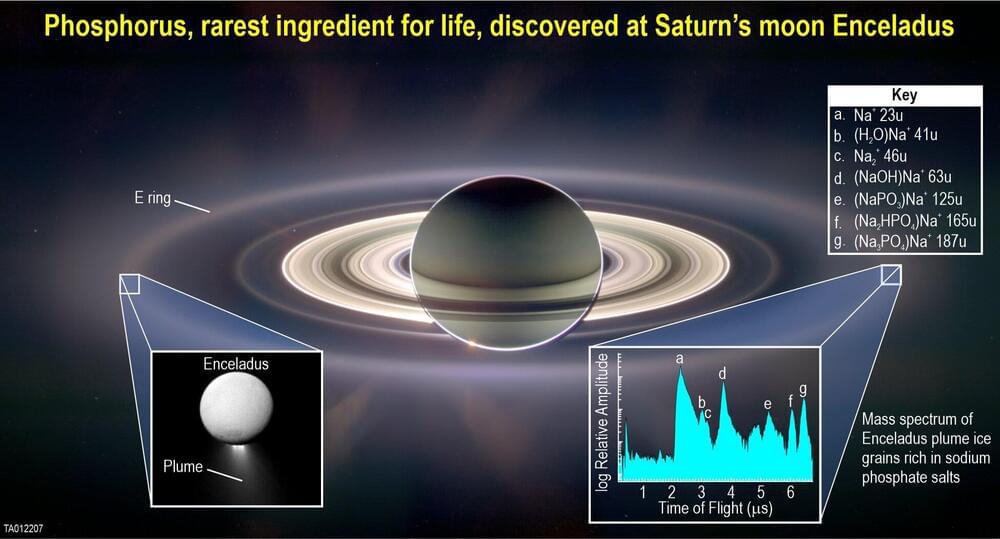The search for extraterrestrial life in our solar system just got more exciting. A team of scientists including Southwest Research Institute’s Dr. Christopher Glein has discovered new evidence that the subsurface ocean of Saturn’s moon Enceladus contains a key building block for life. The team directly detected phosphorus in the form of phosphates originating from the moon’s ice-covered global ocean using data from NASA’s Cassini mission. Cassini explored Saturn and its system of rings and moons for over 13 years.
“In 2020 (published in 2022), we used geochemical modeling to predict that phosphorus should be abundant in Enceladus’ ocean,” said Glein, a leading expert in extraterrestrial oceanography. He is a co-author of a paper in the journal Nature describing this research. “Now, we have found abundant phosphorus in plume ice samples spraying out of the subsurface ocean.”
The Cassini spacecraft discovered Enceladus’ subsurface liquid water and analyzed samples in a plume of ice grains and gases erupting into space from cracks in the moon’s icy surface. Analysis of a class of salt-rich ice grains by Cassini’s Cosmic Dust Analyzer showed the presence of sodium phosphates. The team’s observational results, together with laboratory analogue experiments, suggest that phosphorus is readily available in Enceladus’ ocean as phosphates.
